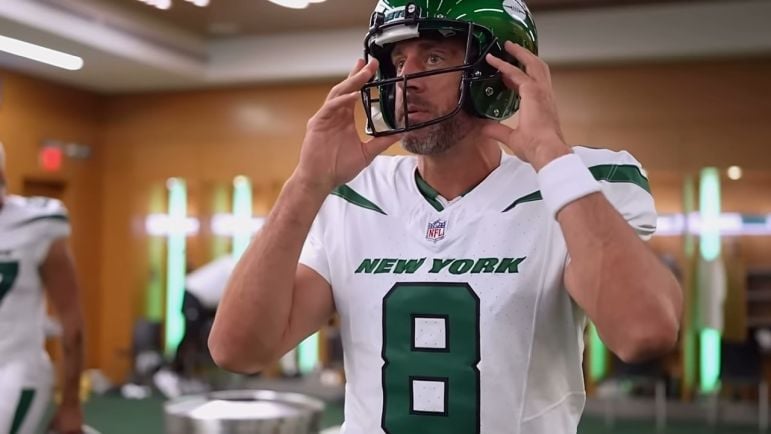It’s Memorial Day Weekend, the unofficial start of summer, and the Pittsburgh Steelers still don’t know who their starting quarterback will be for the 2025 season. While plenty of signs point towards QB Aaron Rodgers signing with the Steelers, he still has not. Rodgers is no longer an MVP-caliber player, but he would still be an upgrade over QB Mason Rudolph. That’s why ESPN’s Mina Kimes believes signing Rodgers could create a “double-sided aspect” for Pittsburgh.
“Aaron Rodgers was not a top quarterback by any metric last year,” said Kimes on SportCenter. “He was 32nd in air yards per attempt, 26th in QBR, and the list goes on. We are obviously seeing the decline in play. But I would also argue there is a double-sided aspect to this for Pittsburgh. Yes, he’s not as good as he was. But, he also might be too good, which is to say he might guide them to a mediocre finish that could make it harder for them to get their quarterback of the future next year.”
Compared to other teams, the Steelers aren’t Super Bowl contenders. They lack elite talent at skill positions, and their defense consistently collapses against elite quarterbacks late in the season. Most importantly, the Steelers don’t have an elite quarterback themselves. Signing Rodgers won’t change those facts.
However, Aaron Rodgers would make them competitive and watchable. With him, the Steelers could sneak into the playoffs as a seven-seed or at least stay in the playoff hunt late into the season. Without Rodgers, it is hard to see Pittsburgh competing for a playoff spot. Yes, Rudolph (and Devlin Hodges) helped push for a playoff berth in 2019 (barely missing out), but that Steelers defense was much better than it is this season.
Though Rodgers might worsen Pittsburgh’s draft position, the impact will be minimal because of their accumulated draft capital. The Steelers are projected to have 12 draft picks next season, including seven in the top 150.
Even with Rudolph it would be crazy to expect the Steelers to finish with a top-five draft pick. That hasn’t happened since 1970. With Rudolph, at best, they’d land a draft pick in the 5-10 range. More likely, though, they would draft in the early teens. With Aaron Rodgers, the Steelers would probably draft in the late teens or early 20s. That’s not a massive difference, especially considering the draft capital Pittsburgh has if they want to trade up.
Given the draft issue is overblown, signing Rodgers makes sense. While players will say they have faith in Rudolph, they must publicly say that. Pittsburgh’s stars are aging and want as many chances to win as possible. Rodgers likely won’t bring a Super Bowl to the Steel City, but players can squint and convince themselves of that possibility. They won’t be able to do that with Rudolph.
Signing Aaron Rodgers isn’t a “double-sided aspect.” The Steelers are loaded with draft capital for the 2026 NFL Draft, so a slight drop in draft position won’t matter much. More importantly, signing Rodgers may placate Pittsburgh’s veteran stars who are hungry for playoff success. Starting Mason Rudolph won’t do that.








